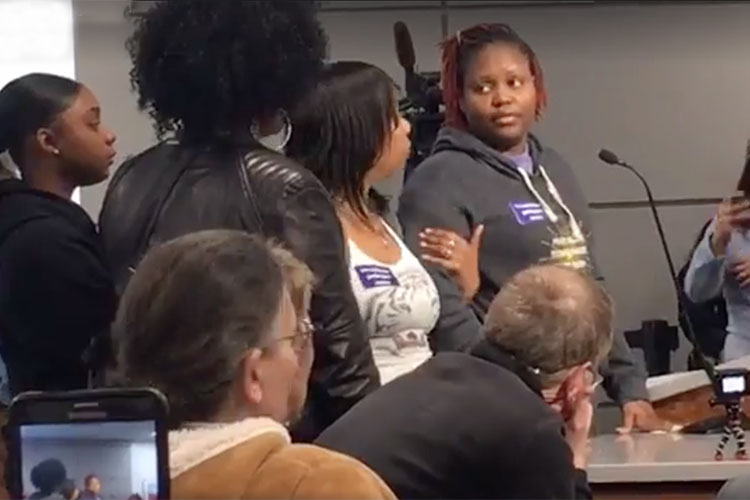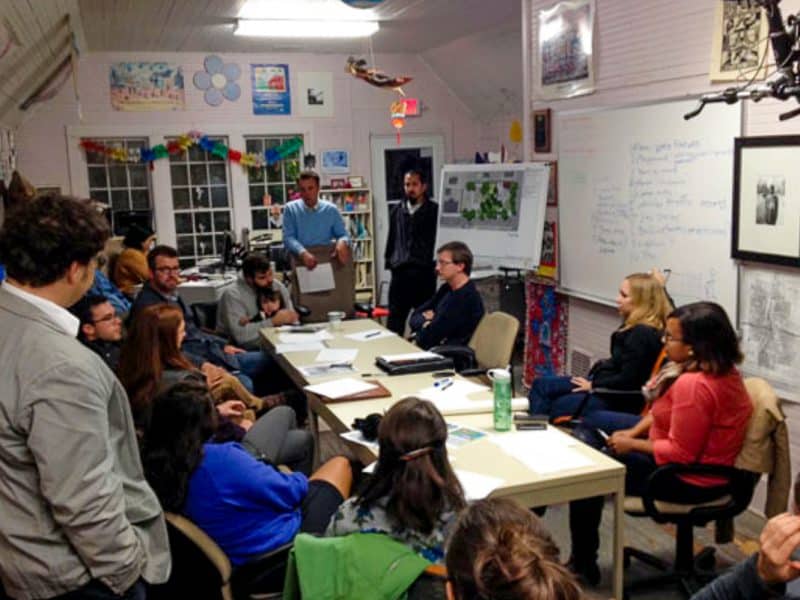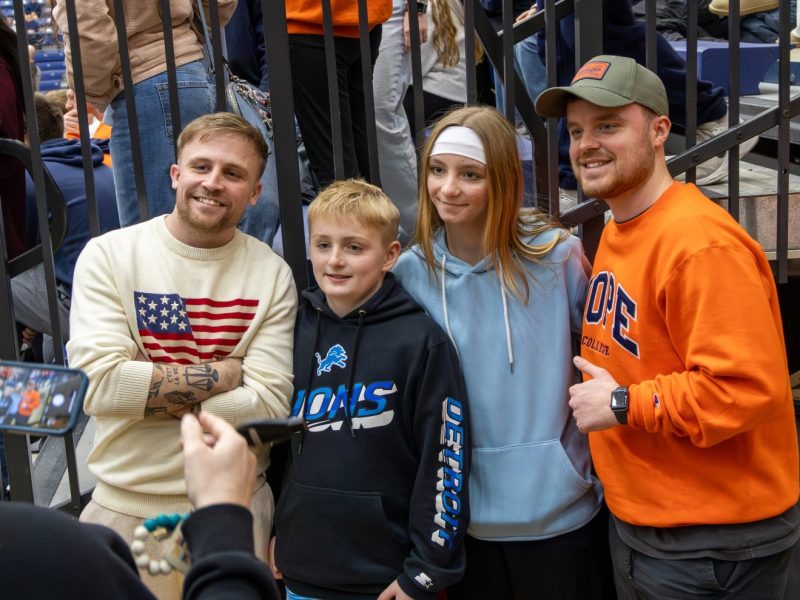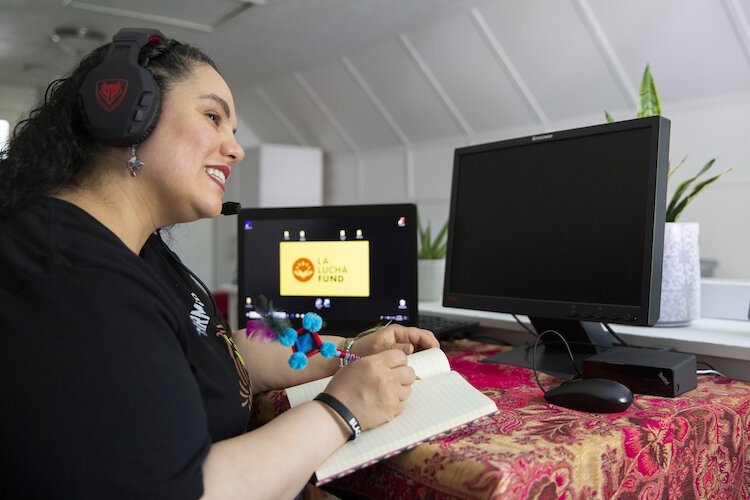G-Sync: Words, like “I’m sorry,” still matter in this modern world
In Grand Rapids, a group of mothers whose unarmed sons were stopped at gunpoint by police are seeking an apology, and it is Rapid Growth Publisher Tommy Allen's hope that they get it. Here, Allen explains why he believes an "I'm sorry" is not only possible, but necessary.

In the fall of 2006, I was traveling westward on Cascade Road back towards my home. At the same time, fate would have it that a vehicle heading east would rear-end a car waiting to turn, sending it into my lane and causing a head-on collision …and a radical shift in my life plans.
While this accident would ultimately require me to rethink the path ahead of me, I gleaned many insights as I healed. Some of these insights made my life turn out for the better because they changed who I am, but others still linger unresolved and still to this day haunt me because of their ordered silence.
My recovery became a well-worn path, leading me from doctors’ appointments to physical therapy to counseling as I sought to repair and rebuild my life.
Moving through the legal process was also a pathway where my Frank Capra-like world view was challenged at nearly every step of the way.
On one of my days when I was feeling depressed and low, I recall asking my lawyer, “Do you think I’ll get an apology from the person who set these events in motion?”
The answer was always long and well thought out logically but amounted to the same answer each time I would ask: “No.” This is the world of legal, where apologies rarely arrive without some miraculous prodding.
But my asking for an apology was not rooted in trying to add a cherry to the proverbial lawsuit sundae that was made up with piles of documents and medical reports.
No, I was seeking an “I’m sorry” because I craved closure, something I am reminded of almost every day as I seek pain relief.
In Grand Rapids, a group of mothers are also seeking an apology, and it is my hope that they get it. Hear me out as to why I believe an “I’m sorry” is still possible against all odds.
Last month, on March 24, a large fight involving about 100 kids broke out on the basketball court at the Salvation Army Kroc Center on South Division Avenue.
As the fight subsided and the crowd dispersed, one group of children between the ages 12 through 14 who were also at the center headed for home.
At about the same time that these boys would start their journey home on foot, the Grand Rapids Police Department (GRPD) received a tip about the fight and that one teen who was walking home with his buddies was allegedly armed with a gun in his backpack.
So when an officer spotted a group of kids whom he determined matched the description of the teen in question, he and his fellow officers drew their weapons on five young African American boys and ordered the entire group to get face-down on the ground.
None of the teens were actually the suspect, nor armed, and the results of this incident have ripped through our community in the weeks that followed.
A reason this event has brought our city to a near breaking point of civility — as shared repeatably by people of color both publicly and privately — is because of our local history, which is filled with disparities of justice that we are finally as a community coming to see much more clearly. This issue is happening all across the nation as cities must begin to decide how they want to proceed in the face of such emerging data that tells us what people of color have known for decades; there is something wrong, and we have to address it now.
GRPD Chief David Rahinsky has shared with the community that he has met with the youth and their families to offer an apology to the kids, but he also has stressed that what the officers did at the scene of the incident was part of their protocol.
At the Grand Rapids City Commission meeting on April 11, more than 300 people from the community, as well as many community groups, would pack City Hall, demanding an apology from the officers involved–not just the police chief.
I attended and witnessed this nearly two hours of public comment as citizens lined up to deliver their feeling, stories, opinions, and demands for changes within the police department.
While the various speakers were insightful because of the scope of topics, it was the voices of the mothers of these five boys that stood out to me.
As the mothers addressed the commission, one struggled to find the words, fighting back tears as the others quietly extended an outstretched hand of support. From where I was sitting in full view of the podium, it was moving in its honesty.
One theme became very clear: this incident had changed their lives and those of their children.
The day after the commission meeting, the two GRPD unions, the Grand Rapids Police Officers Association and Grand Rapids Police Command Officers Association, issued a statement that declared that the officers involved in the March 24 incident would not be apologizing to these five children.
As I reflected on these mothers and their children, I am once again cast back to the days when I would ask for an apology knowing full well that the legal system would not deliver it. But I still asked for it, and so should these women.
I believe it is possible we may never have a public apology but I also believe that in Grand Rapids we can break from decorum and do something remarkable, unthinkable in other places.
And while the police say that they did follow protocol, my thought is that, at this point, the stakes are so high on both sides that it is more than just the fear of our legal system and what it may deliver that ultimately keeps us from “hearing” something so desperately needed.
So maybe we do need a better policy, and hopefully we will not have to travel far to find examples like this one from the University of Michigan (UM).
In an Ann Arbor News story from August 2010, “University of Michigan’s policy admitting medical errors reduced costs, study finds” by Tina Reed, it was reported that having a policy where apologizing is possible can result in decreased liability costs to the health system and does not lead to additional malpractice lawsuits.
The study shows that when we apologize, it is really possible that the person who has been wronged will feel a sense of satisfaction via an apology with an explanation and “are less likely to file a lawsuit when they feel the health system is being transparent.”
Maybe our police chief can lead by his example within his ranks to produce this level of humanity so desperately needed at this point.
When we were children, one of the first things we learn is that if we have done someone wrong, we say, “I’m sorry.” We say it even when we think our actions may have been in the right. And yet, an apology is about perspective. It is ingrained in us as a humans as part of our social order DNA. It is something that makes us truly unique on this planet.
With other studies starting to echo the UM study’s worth, we should be adopting more policies that favor apologies as a counterbalance to our litigious society.
We are a city that has faced many challenges in the past. It is something we, who have called this place our home for some time, can agree is a part of our uniqueness. It is an idea I remain committed to: the belief that even as we are having these complex and difficult conversations on race, we can make a new and better city where the impossible is truly possible.
It is why I am reaching out today to those officers involved on the March 24 incident to ask them with humility and respect for their position to break from their union’s stance to do what we know is the right thing to do by these children. We all play a role in creating societal order by our actions or inactions. We can kick these kinds of issues down the road or we can adopt a vision President Truman proclaimed openly when he said, “the buck stops here.” So why not start building that tomorrow today?
We have a lot of growth to do here as a city in how we treat each other; we all know that some things like saying “I’m sorry” should not be this hard.
Do the right thing; please talk to those boys. Give them hope that we, as adults, can be the people we looked up to when we were their age. Let’s give them a bit of hope for the future city we will be handing to them far sooner than we can imagine by saying, “I’m sorry.”
The Future Needs All of Us (so let’s act like it.)
Tommy Allen
Publisher
Rapid Growth








